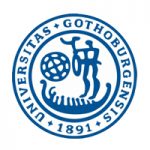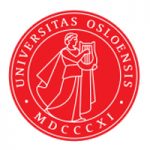项目介绍
The University of Gothenburg tackles society’s challenges with diverse knowledge. 56 000 students and 6 600 employees make the university a large and inspiring place to work and study. Strong research and attractive study programmes attract researchers and students from around the world. With new knowledge and new perspectives, the University contributes to a better future.
One doctoral position in Education
The University of Gothenburg meets society’s challenges with diverse knowledge. With 56,000 students and 6,600 employees, the university is a large and inspiring workplace. “High-quality research and distinguished educational programs attract researchers and students from all around the world. With new knowledge and perspectives, the University of Gothenburg contributes to a better future.
The Department of Education and Special Education (IPS) is one of four departments in the Faculty of Education. Key areas of interest in the department include education and societal relations, educational systems, school development and leadership, adult education, inclusion, learning, language and assessment, and grading issues. A significant part of the department’s undergraduate education takes place within various teacher programs, but we also offer education at bachelor’s, master’s, and doctoral levels within our educational areas: education as a science, work life education, educational leadership, communication, school development, didactics, and teaching.
For more information about the doctoral education program in education at the University of Gothenburg see:Doctoral Studies | University of Gothenburg For information about the Department of Education and Special Education see: Department of Education and Special Education, University of Gothenburg
Subjects
The Department of Education and Special Education is recruiting one doctoral candidate in the research subject Education See more information about the subjects: Doctoral Studies | University of Gothenburg
Education is one subject in doctoral studies of educational research, focusing on educational issues in general, e.g., teaching, nurturing, socialization, formation, and learning. It has a special interest in the relationship between the individual and society and the conditions under which institutional conditions operate and have operated over time. Within the subject of Education, influence processes and their significance for the relationship between structure and agency, within and outside the formal education system, are also examined.
Several strong research environments at the Department of Education and Special and Special contribute to increased dynamics between research, education, and collaboration with society. These environments have their unique focus, but all share a common commitment to educational issues,for more information, please see Research Environments | University of Gothenburg
The Förutsättningar, Utbildning och Resultat (FUR) research environment focuses on classic educational questions within three main areas: individual prerequisites for education, the organization and resources of education, and the results of education at both individual and system levels. The research environment Lärande, undervisning och bedömning i språk (LUBS), with its focus on learning and assessment in language, works to integrate these aspects into both internal and external activities. This includes teacher education and collaboration with society outside academia. The Platform for Research in Inclusive education and School development (PRIS) aims to bring together special education issues with aspects of school development and leadership. The research environment Skolutveckling och Ledarskap (SKUL) concentrates on school development and leadership, with a special focus on what teachers and school leaders do to promote the development and learning of children and students. It also addresses how preschools and schools handle change and improvement processes. The research environment Kritiska teorier (KRIT) addresses research questions related to power, subjectivity, and resistance within educational institutions, and is grounded in a critical educational sociological tradition. This environment uses methods such as critical ethnography, policy studies, and narrative analysis to explore its themes. The research environment Pedagogy and Politics (POP) studies the political aspects of educational phenomena, linked to traditions within curriculum theory, comparative education, and analyses of educational processes and systems.
The current doctoral position is linked to the research project ”Att vara kvar eller hoppa av? Utbildningars genomströmning och studenters banor genom svensk högskola” at Centrum för högre utbildning och forskning som studieobjekt (HERO), Uppsala University, and is devoted to statistical analyses of register data on students at Swedish higher education institutions and case studies of a number of higher education programmes.
Job assignments
The successful applicant will get a four-year employment as doctoral candidate and engage in doctoral studies at the Department of Education and Special Education. Guided by the supervisors, the doctoral candidate will formulate and accomplish a doctoral thesis (155 higher education credit points) and take courses at doctoral level (85 higher education credit points) in accordance with both a general and an individual study plan. During the doctoral period, the dissertation will be presented and discussed in seminars with invited discussants on at least three occasions. The doctoral student will be a member of a research environment at the Department. The department encourages and supports the dissemination of the dissertation at national and international conferences.
Doctoral education comprises four years of full-time study that leads to a doctoral degree. As part of the employment, you may do departmental duties for to up to 20 % of full-time employment, which can be distributed throughout your study period. Departmental duties usually consist of teaching at undergraduate and advanced levels. They may also be research assistant or administrative work. The doctoral employment can thus be extended depending on the amount of time a doctoral candidate involves in the departmental duties.
Eligibility
To be eligible for admittance to doctoral studies in the research field of education, conditions for both basic eligibility and special eligibility must be met. In addition, the applicant should be able to show that he/she has the necessary ability to complete the education.
“The general eligibility requirements for doctoral studies in Education sciences are:
having completed a second-cycle qualification , or the fulfilment of course requirements with a total of at least 240 credits, of which at least 60 credits must be at the second-cycle level, or the acquisition of equivalent knowledge in some other way, either in Sweden or abroad.
The specific entry requirements for the subject Education, according to the general syllabus, are:
At least 90 higher education credits in Education, of which at least 30 credits must be completed in the main field of study including an independent project of 15 credits. Anyone who in any other way within or outside the country has acquired equivalent knowledge is also eligible. “
Assessment criteria
Applicants who meet the eligibility requirements will, according to the Higher Education Ordinance, Chapter 7, be evaluated by experts and based on the evaluations of the subject’s relevance to the department and of the applicant’s ability to assimilate the doctoral program, a selection will be made by the admission committee.
The selection is based on the following assessment criteria:
- quality in qualifying degree project (or equivalent document)
- the quality of the submitted research plan
Admission takes place in competition based on an overall assessment of the applicants’ submitted documents. The assessment of the applicant’s ability to assimilate the doctoral program will be indicative. Central to this assessment are the results of previous essays and degree projects as well as a clearly formulated research plan in which the applicant presents his or her planned dissertation area. The research plan for the dissertation is assessed based on its scientific relevance and whether it addresses motivated and researchable questions and states adequate forms for implementation. If more than one author is available for qualifying work, the applicant’s individual contributions must be clarified.
Given the focus of the project, experience in research work, preferably both quantitative and qualitative analyses, and writing scientific texts is a merit. Great importance is placed on personal suitability. Familiarity with statistical programs such as SPSS, SPAD and R is a merit. Good language skills in English and Swedish are necessary.
The applications are prepared by an admission committee whose task is to rank the applications. Interviews with a selection of applicants can be conducted. Decisions on admission are made by the head of department.
The department will primarily consider those of the applicants who, after an overall assessment, are considered to have the best conditions to take advantage of the doctoral program, including the department’s ability to offer supervision.
Opportunity to have previous education or professional activities credited for postgraduate education may not, in selection, give the applicant priority over other applicants (Higher Education Ordinance, Chapter 7, Section 41).
Guidelines for research plan
The research plan must be an overview of the dissertation project that the applicant intends to work on during his / her research at the doctoral level (maximum 5 A4 pages excl. Reference list) and should contain the following headings. Background and purpose, Previous research, Theoretical starting points, Method, and References.
Employment
Once admitted to doctoral studies, you will be employed as a doctoral candidate at the University of Gothenburg. The first appointment as a doctoral candidate may be for a maximum of one year, and the employment can then be renewed for a maximum of two years at a time. A doctoral student may be employed for a maximum of eight years, but the total period of employment may not be longer than the equivalent of full-time employment for four years.
The provisions for employment as a doctoral student can be found in ordinance SFS 1993:100.
Form of employment: Temporary employment, corresponding to 4 years of full-time studies Scope: 100%
Placement: Division of Special Education, Department of Education and Special Education, University of Gothenburg
Access: 1st of September 2025 or by agreement.
Record number: PAR 2025/370
The University applies a local agreement on salaries for doctoral students.
Selection process
Applications are prepared by an admissions group, decisions on admissions are made by the head of department. The position is contingent on decisions regarding funding, More information about admission to the doctoral programs at the University of Gothenburg can be found here:https://www.gu.se/en/doctoral-studies/applications-and-admission
Contact information
Daniel Bergh, Director of the doctoral studies daniel.bergh@gu.se
Jakob Åsberg Johnels, Head of the Department for doctoral studies: jakob.johnels@gu.se
HR: Ivana Nikolic, ivana.nikolic@gu.se
Unions
Union representatives at the University of Gothenburg can be found here:
Application
You can apply this announced doctoral candidate position via the University of Gothenburg’s recruitment portal. It is your responsibility to ensure that the application is complete as per the vacancy notice, and that the University receives it by the final application deadline.
Your application documents should be digitized as far as possible. Please specify whether your application is for the subject Education or Educational work. Also, indicate which of the six research environments your application is associated with.
Register your application electronically under “Apply online”. The application should contain the following:
- Personal letter with a short description of relevant background, max one A4 page
- Curriculum Vitae / Curriculum Vitae
- Study documentation that proves the basic and special qualifications (Excerpt from LADOK or other study documentation register)
- Essay / degree project comprising at least 15 credits at advanced level and a further maximum of one research-related text (e.g., article, report, etc.)
- One (1) research plan, maximum five A4 pages (see guidelines below and under the heading assessment basis)
- References (optional)
- Other qualifications the applicant wishes to invoke.
The preliminary research plan, not exceeding 5 pages (12pt font, excluding the reference list), should address questions relevant to the dissertation project (including graduation rates of Swedish higher education students) , the subject context, the current state of research, materials and methods, as well as reflections on the relevance of the dissertation project. All accompanying documents must be in either Swedish or English.
Scientific publications, publications and the like that are not available in electronic form must be marked with a reference number and sent to:
University of Gothenburg,
Department of Education and Special Education Ivana Nikolic
Box 300
405 30 GOTHENBURG
Applications must be received by: 2025-05-21
Information for International Applicants
Choosing a career in a foreign country is a big step. Thus, to give you a general idea of what we and Gothenburg have to offer in terms of benefits and life in general for you and your family/spouse/partner please visit:
https://www.gu.se/en/about-the-university/welcome-services https://www.movetogothenburg.com/
联系方式
电话: +46 31-786 00 00相关项目推荐
KD博士实时收录全球顶尖院校的博士项目,总有一个项目等着你!





